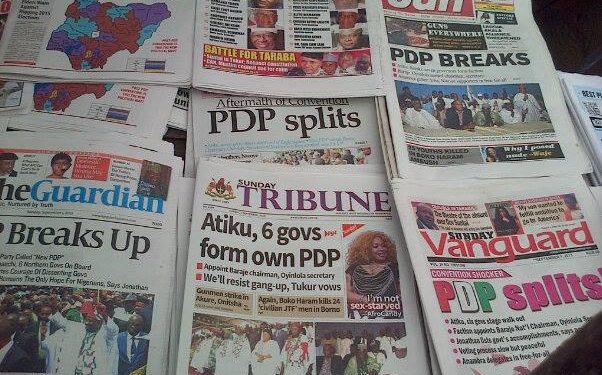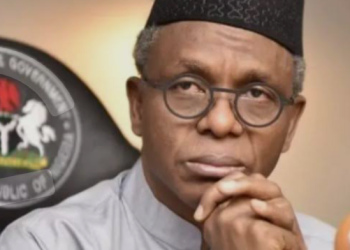Definition of Press Freedom:
Generally, freedom of the press or freedom of the media is the fundamental principle that communication and expression through various media, including printed and electronic media, especially published materials, should be considered a right to be exercised freely. Universally, press freedom is considered a fundamental right for every individual. Under and by virtue of Article 19 of the United Nations Universal Declaration of Human Rights, ‘everyone has the right to freedom of opinion and expression; this right includes freedom to hold opinions without interference, and to seek, receive, and impart information and ideas through any media regardless of frontiers’. Article 9 of the African Charter on Human and Peoples Rights guarantees the right to freedom of expression, which includes media freedom. In Nigeria, freedom of the press is a fundamental right guaranteed to every person under section 39 (1) of the Constitution, in similar terms as that of UNDHR. The marginal note to section 39 states that it is right to freedom of expression and the press.
“39 (1) Every person shall be entitled to freedom of expression, including freedom to hold opinions and to receive and impart ideas and information without interference.
- Without prejudice to the generality of subsection (1) of this section, every person shall be entitled to own, establish and operate any medium for the dissemination of information, ideas and opinions.”
The exercise of this right is however subject to regulation by law through the fulfilment of conditions laid down for the ownership and establishment of television or wireless broadcasting stations. The National Assembly, pursuant to section 39 (2) supra, enacted the National Broadcasting Commission Act to establish the National Broadcasting Commission (NBC) as the regulating agency for the media. Although there may be the need to put in place measures to regulate journalism practice in the interest of peace and stability of every society, they must however be reasonably justifiable in a democratic society.
Cases of Threat to Press Freedom:
There have been instances when the state and its agencies have encroached upon or attempted to restrict the exercise of the right to press freedom by the citizens in circumstances that depict unreasonable interference. A case in point is that of the popular artist, Eedris Abdulkareem, whose latest song, ‘Tell Your Papa’, was axed by the NBC, when in April 2025, it directed all Nigerian radio and television stations not to air the said song. In its statement, NBC claimed that the song is inappropriate for broadcast due to its objectionable nature. Mr Abdulkareem is well known for his protest songs, which he constantly deploys to criticise the government and other societal ills. In June 2024, he released the song titled ‘Emi Lo Kan’, wherein he stated that Nigerians are hungry and suffering from severe hardship. Earlier on in 2004, Abdulkareem released his hit song ‘Nigeria Jaga Jaga’ during the administration of President Olusegun Obasanjo. In 2018, he released a song titled ‘Letter to Obasanjo’, in which he accused the former president of being Nigeria’s problem. The culture of protest songs is not new in or peculiar to Nigeria. Afrobeat legend, Fela Anikulapo-Kuti in his lifetime constantly deployed his music to criticise the corrupted form of African democracy and the wholesale assimilation of religion. Banning Abdulkareem’s songs shows gross intolerance for dissent, which is an essential ingredient of democratic practice worldwides.
Abdulkareem is not the only victim of suppression by the present administration. In February 2024, the Niger State Ministry of Education threatened the coach of a pupil, Master Abdulkadir, for criticising President Tinubu during a debate organised by the school. The young lad simply echoed the plight of all parents in Nigeria who were and are still groaning under the yoke of school fees and other critical obligations. In March, 2025, a student Nurse, Osato Edobor, was threatened by the Delta State College of Nursing Sciences for allegedly recording and sharing a video during the visit of Nigeria’s First Lady, Madam Oluremi Tinubu, where students disagreed with a song raised by the master of ceremony, calling the President’s wife their ‘mummy’ to which all the students chorused “na your mama”, being a subtle message of rejection. The query was reversed following growing outrage from Nigerians. Also in March 2025, Miss Ushie Uguamaye, a youth corps member serving in Lagos State, released a video through her TikTok account (talktoraye), wherein she expressed frustration over Nigeria’s worsening economic conditions, lamenting the high inflation rate and the attendant economic hardships. She questioned the efforts of the government to alleviate the hardship faced by the citizens. She was later to allege that her life was threatened by the NYSC authorities, although the allegation was promptly denied. In Sokoto State, an 18 year-old young lady, Hamdiyya Shariff, was arrested in November 2024 and imprisoned. Her only crime was that she spoke out against insecurity in her state, for which she was abducted by armed thugs on her street, savagely brutalized and thrown off a tricycle. There are many other cases of journalists being harassed, arrested and detained for the expression of their opinions. These are signs of gradual descent into civilian dictatorship, indicating the likelihood of a hidden agenda by those who are in authority to implement some sinister policies.
The Message of Eedris Abdulkareem:
Abdulkareem’s song is a message sent to the President through his son, Seyi Tinubu, who had claimed that President Tinubu is the best Nigerian President so far. In apparent response to this fatuous claim, Abdulkareem stated that Seyi Tinubu had become ensconced with the luxuries associated with governance and in that privileged position, he is not able to experience what ordinary Nigerians are going through. It was a message composed on behalf of the people of Nigeria. Abdulkareem stated that had Seyi Tinubu taken his time to travel through Nigerian roads instead of private jets, he would have experienced the dilapidated state of these roads, most of which have become death traps. The President’s son was reportedly traveling round some states to distribute cooked food and palliatives to the masses as a way of buying their loyalty and patronage. Seyi Tinubu has been widely criticised by many Nigerians on the utility of such a bankrupt policy of weaponising poverty as a means of forcing people to support the government. At least the Northern Elders Forum kicked against this tokenism as a collective insult to the people of the North. Abdulkareem was not saying a new thing. The President’s wife has been going round all the States of Nigeria for what is stated to be women and youth empowerment, which includes sharing money to vulnerable citizens to curry their support for the administration of her husband. In one of such visits to Delta State, people revolted and sang a song which could not be banned. What has Eedris Abdulkareem said that is different from what most Nigerians are experiencing? He challenged Seyi Tinubu to travel by road without any convoy so that he could have an encounter with dare-devil kidnappers. Is it not true that a good number of Nigerians are committing suicide out of frustration occasioned by economic hardship and hunger? Abdulkareem also criticised the state of electricity supply across the country, which has killed and is killing businesses, causing mass discomfort to many citizens in their homes. Even when there is power supply, the Minister of Power has advised Nigerians to stop using their fridges, freezers and air conditioners. Abdulkareem highlighted the inequity of the Band A phenomenon, which even the President is running away from by adopting the solar power solution in Aso Villa.
Eedris Abdulkareem Spoke for Nigerians:
What did Eedris say that drew the anger of NBC to ban his song? He stated that the rising spate of inflation has made it difficult for Nigerians to afford decent clothing, such as common jeans and T-Shirts. After two years of Tinubu’s presidency, Abdulkareem says there is no significant improvement in the lives of the masses who are dying daily due to hardship occasioned by the economic policies of fuel subsidy removal and floatation of the Naira. The people are hungry and angry and each time they express themselves through protests, they are suppressed by the government through the deployment of soldiers. He took a swipe at the National Assembly for approving the state of emergency in Rivers State and the appointment of a retired military man as sole administrator. In his song, Abdulkareem decried the manipulations going on in the electoral process and the compromise of the judiciary. He accused the President of dishing out many promises during his campaign most of which he has not fulfilled. He took a swipe at the Lagos-Calabar Coastal Road which is being executed at the expense of local roads for the movement of goods and services. He accused the banks and the telecom companies of colluding with the government to fleece their helpless customers. Abdulkareem stated that he is not against the President but only expressing the collective frustration of Nigerians who desire good governance and the dividends of democracy, with a vow to publish any improvement in the lives of the people that may be attained in the course of time.
You cannot beat a child and at the same time stop him from crying. These and other cases of repression of press freedom are executed in violation of the constitutional rights of the citizens, whereas the authorities could do better with active engagements in order to strike a positive balance between the exercise of freedom and the protection of others. In no way should we criminalise free speech. Section 36 (1) grants all citizens the right to fair hearing in the determination of their civil rights and obligations, a violation of which renders any decision taken as unconstitutional. Beyond this however, the government and its agencies must make conscious efforts to allow dissenting opinions to thrive as part of our democratic experience.
*Adegboruwa, SAN is a columnist with the Nigerian Tribune









